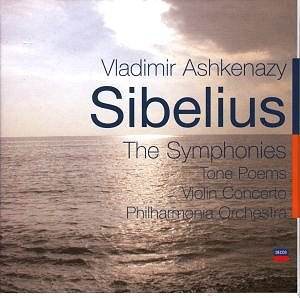
Whereas Ashkenazy produced a big, bold, extrovert version that is packed with power and presence, Berglund is, for me, more introspective and questioning with his interpretation. Ashkenazy’s opening movement is a statement whereas I find Berglund’s to be more of a question. Different approaches are what it is all about but Berglund is, for me, too hesitant and tentative with this music; the delivery of the musical statements lack body and breadth when compared with Ashkenazy. Momentum and breadth do build up towards the end of the movement and the mood does change and ends strongly enough.
Berglund’s vision is much more suited to the second movement where the delicate opening theme is played with a beautifully light touch. There is almost a sense of mischief in the early variations. However, just for balance, we also get a nice sense of menace later on and the movement ends beautifully and delicately.
The “moto perpetuoso” section of the final movement once again lacked a bit of weight for me. The horn section when it arrives is very fine though but again it is slightly questioning or hesitant. The conclusion is quite positive and assertive and ends on a positive note.
I have raised some issues that I personally have with this recording. That is not to say that it is a bad recording; it certainly is not that! It has some very fine playing and it is recorded in a slightly colder acoustic which I normally prefer with Sibelius. Like all of Classical Music it can all come down to a matter of interpretation and with this particular work I simply prefer the bigger, bolder approach that Ashkenazy takes over the more contemplative Berglund.



